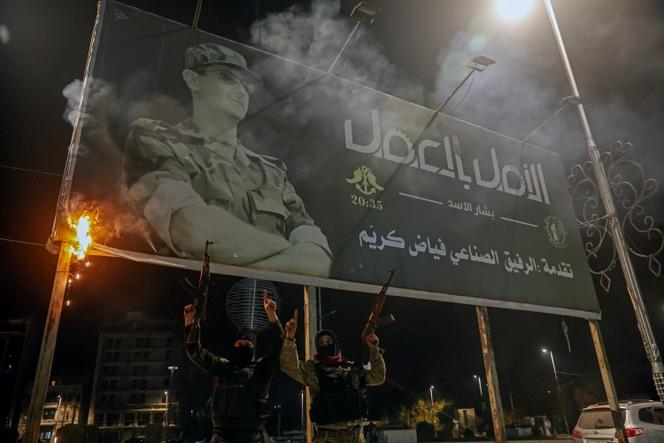


In 2015, at the height of the rebel advance in Syria, Bashar al-Assad, aware of his army's weakness, chose to abandon territories deemed secondary, such as Idlib, to better cement his control over more strategic areas. A front line divided the city of Aleppo in two, between the loyalist forces controlling the west and the rebels holding the east.
Nine years later, the situation is repeating itself. The army and its Iranian and Lebanese Hezbollah allies offered no resistance to the entry of an insurgent coalition into Aleppo on Friday. Dominated by the radical Islamists of Hayat Tahrir al Sham (HTC), the former branch of al-Qaida in Syria, this alliance took control of the large city in northern Syria after a lightning offensive. The pro-regime troops withdrew to the region bordering Hama, leaving it to their air force and that of Russia, another protector of Damascus, to strike back at the attackers by bombing Idlib and Aleppo.
The insurgent fighters, with apparent Turkish support, have seized the moment: the pro-Iranian camp has been weakened by the blows dealt to it by Israel in Gaza, Lebanon and Syria. Meanwhile, Russia, preoccupied with its war in Ukraine, no longer has the same financial and human resources as in the mid-2010s, when it deployed its MiGs (fighter aircraft) operated from the Hmeimim base on the Syrian coast. Adding to the geopolitical complexity, the rebellion, which includes factions backed by Ankara, captured Tall Rifaat, a Kurdish-controlled locality near the Turkish border, on Sunday. In response, Kurdish forces have announced their intention to evacuate Kurdish civilians from Aleppo.
Assad had managed to save his position, thanks to the intervention of his powerful Russian and Iranian allies. But he was never able to reconquer the whole of Syrian territory, with the northeast and its oil wells remaining in Kurdish hands, and the northwest under anti-regime control. He became the king of a fragmented and bloodless country, deprived of resources and unable to rebuild and bounce back.
After the regime's recapture of the main rebel strongholds (Aleppo, Ghouta and Deraa) in 2018, credit was given to militia leaders and businessmen who had helped secure its survival. However, endemic corruption has never ceased. Sanctions, put in place at the start of the repression of the 2011 uprising, were tightened in 2020 with the adoption of the "Caesar Act" under the Trump administration. Named after a Syrian military police photographer who exposed tens of thousands of images showing prisoners tortured or starved to death, the law effectively placed Syria under a de facto economic embargo.
You have 58.52% of this article left to read. The rest is for subscribers only.
